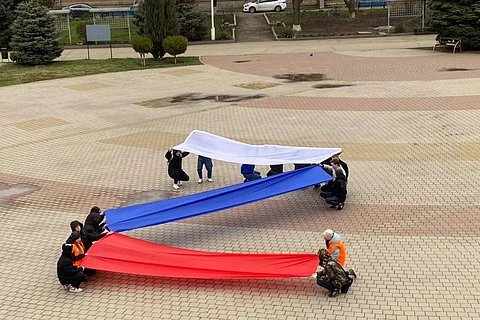

The next round of negotiations between Russia and Ukraine is set to take place on Wednesday in Istanbul, marking the third such meeting since May after more than three years without formal dialogue between the two nations.
Ukrainian President Volodymyr Zelensky announced the upcoming talks during his evening address on Monday, stating that the priorities will include prisoner-of-war (POW) exchanges, the return of Ukrainian children currently in Russia, and preparations for a potential summit between the two countries' leaders.
Zelensky’s decision to initiate talks surprised many observers, as he had repeatedly ruled out any dialogue with Moscow in recent weeks. The announcement comes amid growing pressure on the battlefield, particularly as the strategic city of Pokrovsk in the Donbas region faces an imminent encirclement by Russian forces.
While the previous two rounds of negotiations—held on May 16 and June 2—resulted in POW exchanges and the return of fallen soldiers, little progress is expected from Wednesday’s talks regarding a broader peace settlement. The current dialogue is expected to remain focused on humanitarian issues.
The prospects for a ceasefire remain slim due to the deep divisions between the two sides. Ukraine continues to insist on an unconditional ceasefire along the current front lines, while Russia demands significant territorial and political concessions—including a formal commitment by Ukraine to never join NATO.
Moscow, reportedly caught off-guard by Zelensky’s weekend proposal, has shown no signs of shifting its position. The Kremlin has remained firm despite increasing international pressure, including a recent 50-day ultimatum from U.S. President Donald Trump, threatening 100% tariffs on Russia’s trading partners if the conflict is not ended.
On Sunday, Kremlin spokesman Dmitri Peskov reiterated that Russia’s war goals remain unchanged and would be pursued “on the battlefield,” emphasizing that Moscow would continue its operations even as talks proceed.
Zelensky’s unexpected pivot toward renewed diplomacy may reflect the urgent need to address Ukraine’s worsening battlefield situation, particularly as key cities like Pokrovsk face potential collapse, raising the stakes for both military and diplomatic efforts.